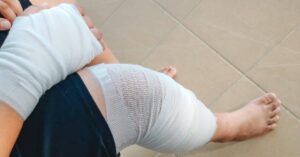Individuals want to think of nursing homes as a safe haven for their elderly family members when it is no longer practical for them to live on their own. But all too often, that safe haven turns out to be dangerous. Injuries and illnesses caused by neglect or abuse occur far more than one would like to believe.
Given the fragile nature of the patients in the care of nursing homes, these injuries and illnesses can become serious with frightening speed, leading to grave complications.
That is why if you suspect a loved one has been subjected to mistreatment or neglect at a nursing home, it is imperative to contact an experienced Kinston nursing home abuse lawyer as quickly as possible.
Types of Abuse
Sadly enough, patients in nursing homes have suffered a variety of different types of abuse at the hands of their caregivers. Some examples include:
- Improper administration of medication
- Failure to maintain proper hygiene
- Overuse of physical or chemical restraint
- Failure to respond to requests for care
- Forced feeding
- Neglect of sores or other medical issues needing treatment
- Improper movement of patient during treatment, between settings or in a vehicle
- Failure to provide adequate hydration
Problems in one area can lead to the development of additional problems. For instance, if patients with limited mobility are not given adequate attention, they may develop bed sores or severe loss of muscle tone and coordination. The reduced muscle tone then increases the likelihood of accidents such as potentially dangerous falls.
The key is prompt attention to potential problems. If someone suspects, for example, that a loved one has received too much or too little medication or that their requests for assistance have been ignored, they should not wait until the problem causes dangerous consequences and contact a nursing home abuse attorney in Kinston right away.
For a free legal consultation with a nursing home abuse lawyer serving Kinston, call (800)785-5000
Causes of Abuse
The quality of care in a nursing home or similar elder care facility is directly related to the quality of the staff hired, trained and employed by that facility. When problems arise concerning improper care, they can be caused by several factors such as:
- Low staff to patient ratio
- Improperly trained staff
- Staff expected to do jobs for which they are not qualified
- Inadequate or improper management of staff
- Staff assigned too many hours
- Improper management of staff stress
Kinston Nursing Home Abuse Lawyer Near Me (800)785-5000
Restraint Reliance
These factors can cause the nursing home to place too much reliance of physical restraints such as wheelchair belts, leg restraints, hand mitts, lap trays, and bed rails. In addition to physical restraining equipment, patients can be positioned in such as way as to operate as a de facto restraint. Restraints can be dangerous. Physical restraints lead to a greater risk of bedsores, infection, and even strangulation.
Restrained patients often lose strength, mobility and bone mass and may suffer incontinence or constipation brought on by the inability to move adequately.
Moreover, the restraints and resulting lack of freedom to move causes emotional damage in addition to physical effects. Patients who are in restraint frequently suffer depression, agitation, and loss of self-dignity. If you believe you or your loved one’s nursing home facility is relying on restraints and it is affecting a person’s quality of life, contact a nursing home abuse lawyer in Kinston right away.
Click to contact our Kinston Personal Injury Lawyers today
How a Lawyer Can Help
Nursing homes are required to provide a certain level of care to their patients. If they fail to provide adequate care, they can be held liable and forced to undertake measures for improvement. Financial compensation may also be available.
If you suspect that a loved one has suffered neglect or mistreatment by an elder care facility, contact an experienced Kinston nursing home abuse lawyer right away to learn about available legal options.
Call (800)785-5000 or complete a Free Case Evaluation form



